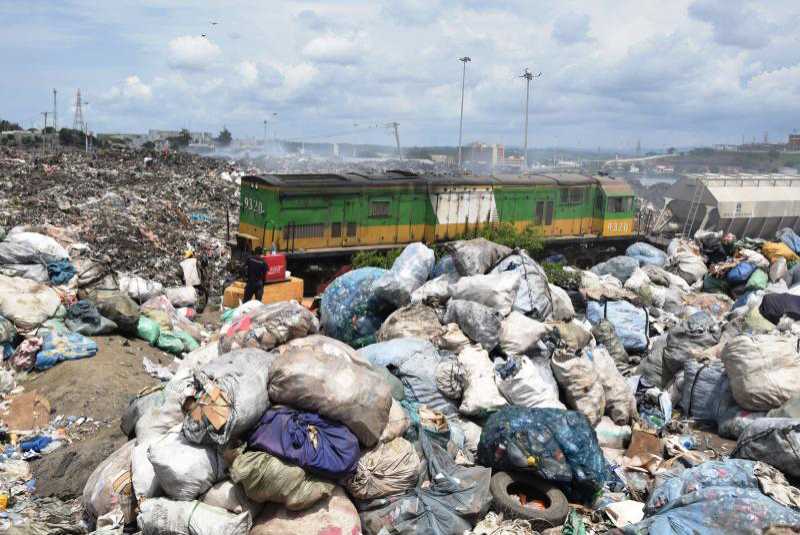×
The Standard e-Paper
Stay Informed, Even Offline

A Kenya Railways cargo engine snails through a section of the Kibarani dumping site near the Makupa Couseway on the mainland side which is completely covered by solid waste materials in polythene bags which has been separated from the garbage after being dumped here by the County Government, August 03, 2018. [File, Standard]
The amount of garbage in the counties has reduced by almost 50 per cent since the ban on plastic bags last year.